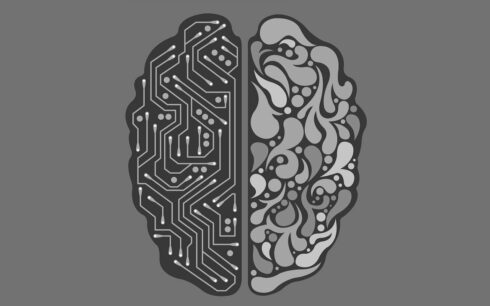
Discourse around the adoption of AI has many developers fearing for their jobs and future livelihoods. Some have taken to online communities, such as Blind, where software engineers gather to discuss careers in tech, to share their concerns about AI making their skills redundant or diminishing their roles. The most outspoken of them suggest that “software engineering is a dying profession” and that the “golden age is over.”
At face value, the numbers sound threatening. AI could replace 300 million jobs by 2030, according to Goldman Sachs. McKinsey estimates that “half of today’s work activities could be automated between 2030 and 2060,” including those in technology development.
But doomsday predictions about new technologies are nothing new — the introduction of steam power during the Industrial Revolution, assembly line production in the early 20th century, and even personal computers and the Internet in the late 20th century all sparked concerns about labor disruptions. Is this just history repeating itself, or are developers hastening their own demise?
AI is more of a friend than a foe
While each new wave of technological innovation has yielded new jobs that couldn’t have existed before, we often cannot foresee the new jobs that are created by technology. Innovation has often been met with fear and uncertainty — or as Joe Lonsdale said during the last AI hype cycle in 2017, “Neo-Luddite fears about technological unemployment are limited in the same way as our ancestors’ worldviews.”
Disruptive technologies tend to automate away routine, repeatable tasks. But through this process of ‘creative destruction,’ a new class of jobs to be done take their place. The same is true with AI.
While making certain jobs and skills obsolete, AI opens up new opportunities to use it to developers’ advantage. When we consider both sides, the big picture looks far less bleak, making a strong case for why — and how — developers should embrace AI.
Most developers are, in fact, already embracing AI. According to a recent GitHub report, as many as 92% of developers are already using or experimenting with AI tools. They are increasingly aware of how AI can relieve the drudgery of repetitive, manual tasks. A new stack of AI-powered development tools can write basic tests, autocomplete simple functions, and generate documentation. They can even bootstrap entire new projects, complete with boilerplate code and instructions to get everything up and running.
The impact so far has been both significant and quantifiable. Developers using GitHub Copilot write up to 46% of their code with it, by GitHub’s estimate.
AI doesn’t merely write more code; perhaps one of the biggest unsung benefits to AI is opening the door to faster learning and new skills. In a 2023 Stack Overflow survey, when asked about the benefits of AI tools, about 25% of developers responded with “speed up learning.” Nearly a third of developers said they already use AI to better understand codebases.
True to its name, Copilot (and similar tools) work alongside developers as they code, similar to pair programming. That allows developers to ‘chat’ with their code, making it easier for them to learn new tools, frameworks, and languages. AI pair programming lowers the entry barrier for junior engineers and opens the door to a new class of engineers.
A new class of engineers
What does the next version of the software developer look like?
The next era of software development is one that will be defined by AI. Developers that spend time honing their AI skills will automate away repeatable tasks and set themselves free to work on more creative projects.
Data from GitHub shows that developers get better at using GitHub Copilot over time. The acceptance rate of Copilot’s suggestions grows from 29 to 34% over the first six months of use. When these new AI skills are combined with ongoing improvements to the underlying models, they serve as a productivity multiplier. “As AI technology continues to advance, it is likely that these coding tools will have an even greater impact on developer performance and upskilling,” says Inbal Shani, Chief Product Officer at GitHub.
As with any new developer tool, each has its own learning curve. Although developers can interact with them in plain English, they can also be manipulated with better, more intricate prompts. For instance, GitHub recommends adding high-level goals to prompts and allowing Copilot to generate code after each step, rather than asking all at once. Over time, developers can learn the types of problems they solve best and ways to guide them to more accurate solutions.
New jobs like Prompt Engineer and AI Engineer tug at our imagination. It is too early to call these the roles of the future — there is much left to build. Yet, these small seeds of change reaffirm software developers’ excitement to continuously reinvent themselves and adapt to a changing world.
AI will almost certainly replace developer tasks over time as tools get better and faster. It seems unlikely, however, that engineers themselves will disappear; their ability to learn new skills is exactly what’s needed to push AI to its full potential. Our world needs these builders now more than ever.







